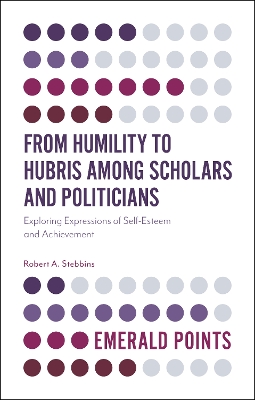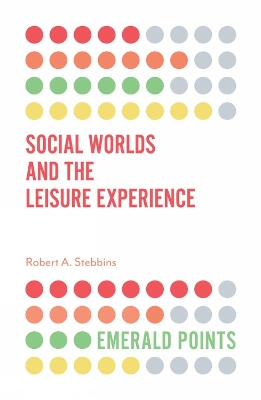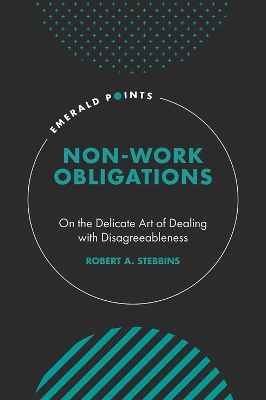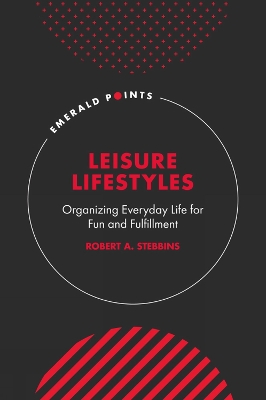Emerald Points
4 total works
One of them is that, at the hubris/conceit end of the continuum of the expression of self-esteem, discussion risks becoming uncivil, owing to the disagreeable ways that achievement is sometimes conveyed (e.g., boasting, name calling, depreciating others’ related achievements). Moreover, such can turn out to be enormously unproductive. Or as Leo Tolstoy once put it: “Conceit is incompatible with understanding.”
This concept is anchored in social theory and, in the domain of leisure, the serious leisure perspective. The social world and its accompanying ethos are centrally implicated as one of six distinctive qualities of the serious pursuits. Taking inspiration from Anselm Strauss, this book discusses the members of leisure social worlds and the activities they enthusiastically pursue, as well as examining the culture and communications of these worlds.
In this new book, Stebbins brings together years of writing and research on this topic to forcefully argue that the current research interest in work-life balance can no longer afford to ignore the effects that non-work obligation has on it. He contends that, whether we like it or not, non-work obligations bear heavily on both our work and leisure. Having to deal with disagreeable tasks and objectionable people on a daily basis, without the support of any outside agency, can seriously undermine our well-being, and it is only through recourse to voluntary simplicity that we can hope to limit the harmful impact of non-work obligations.
Written both as a guide to happy living and as a powerful rejoinder to conventional orthodoxy in the fields of leisure and work studies, the book is essential reading for both the general reader and scholars of leisure, consumer, work and happiness studies.
Acknowledging that the challenge facing social science is how to inject some order into the common-sense notion of leisure lifestyles, this book, written by a major player in the field of leisure, considers how to turn the study of both serious and casual leisure into a useful concept for guiding research.
Developing the common-sense notion that leisure lifestyles have time and space dimensions, Stebbins delves into distinctive leisure lifestyles which occur around particular free-time activities such as the serious ones where participants must routinely train, practice, rehearse, gather information, and those that are casual such as bingo, lunches with colleagues, and outings of small walking groups. Demonstrating the nuances of each, and analysing how serious activities are structured along the lines of the social world in which every lifestyle is embedded, this book revolutionises the idea of leisure lifestyle, turning it into a workable concept for guiding research, while also enriching our understanding of what it means. Striving to meet the test of a critical challenge in the field, this book is a refreshing new addition to the work on leisure, from a highly-respected and established scholar.



